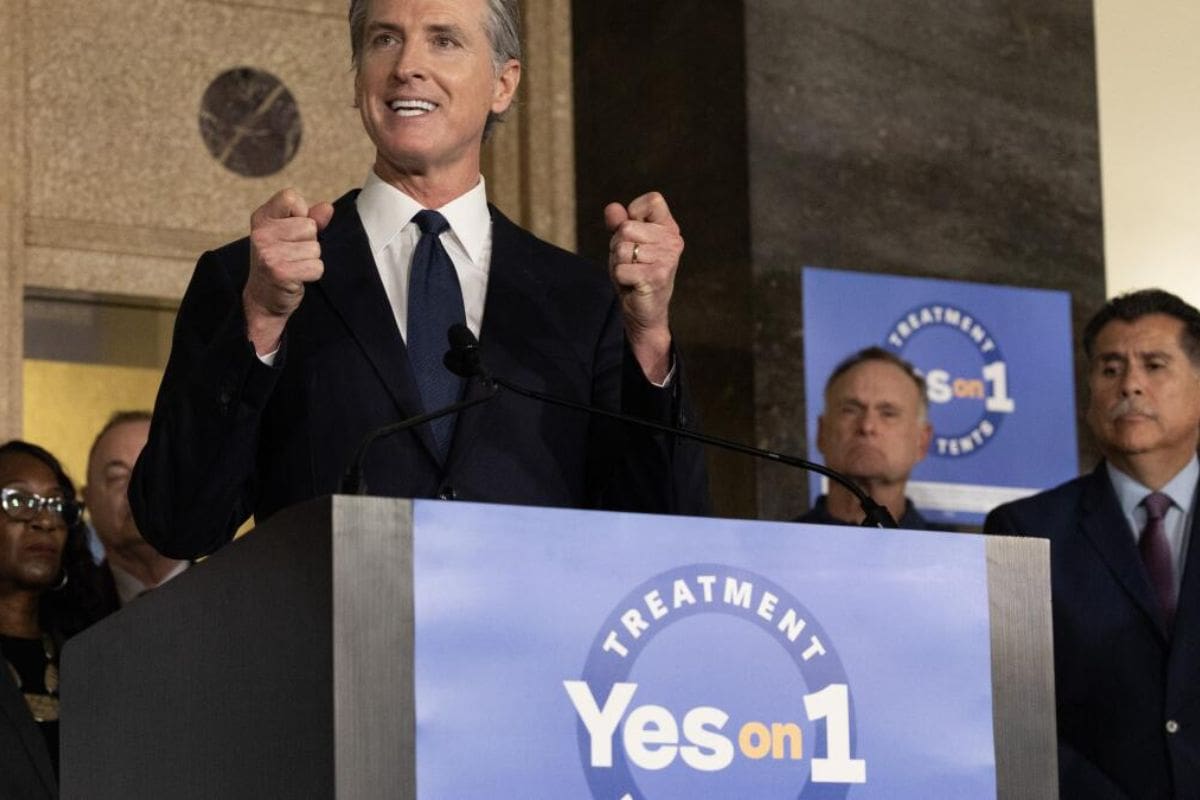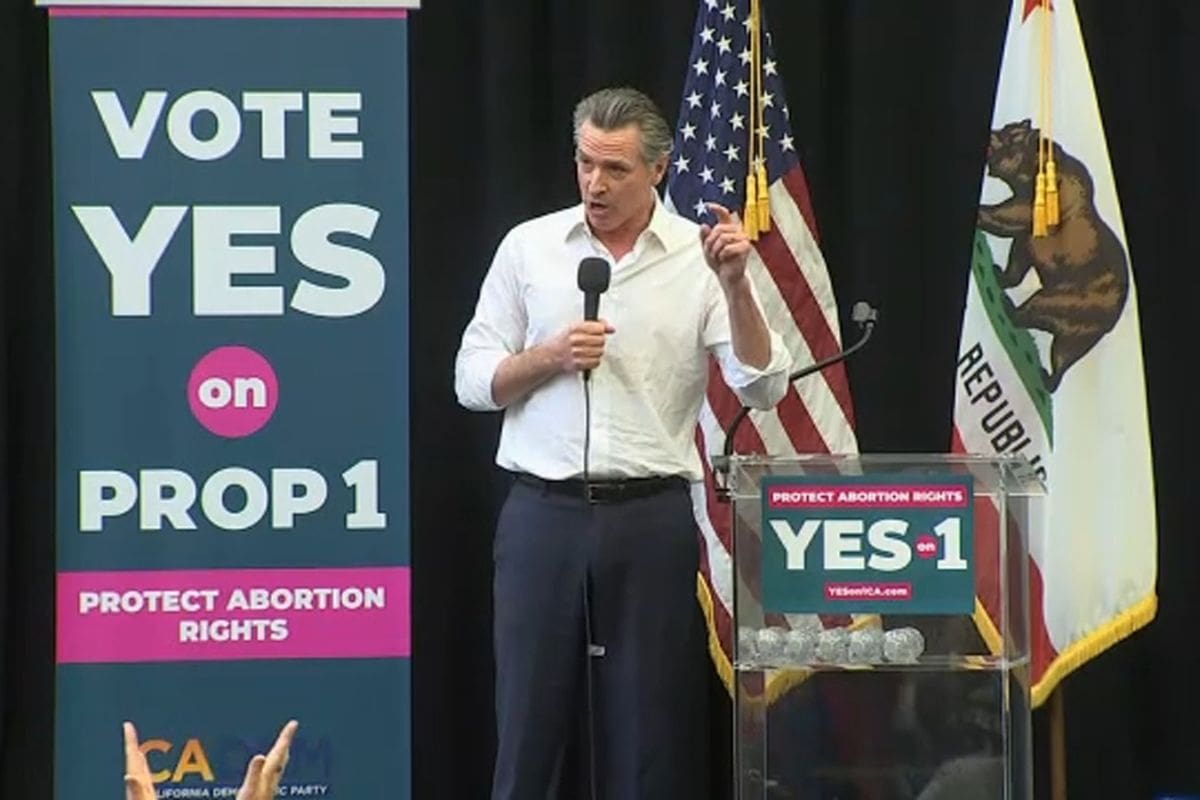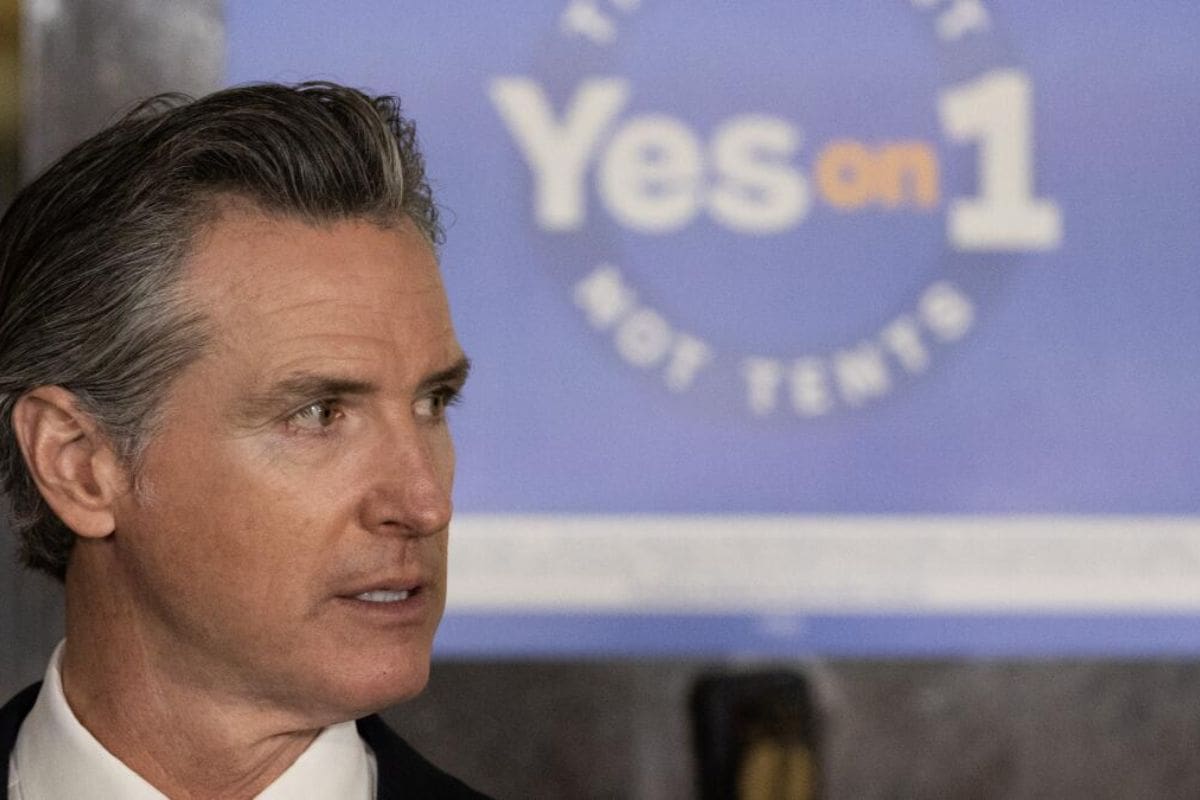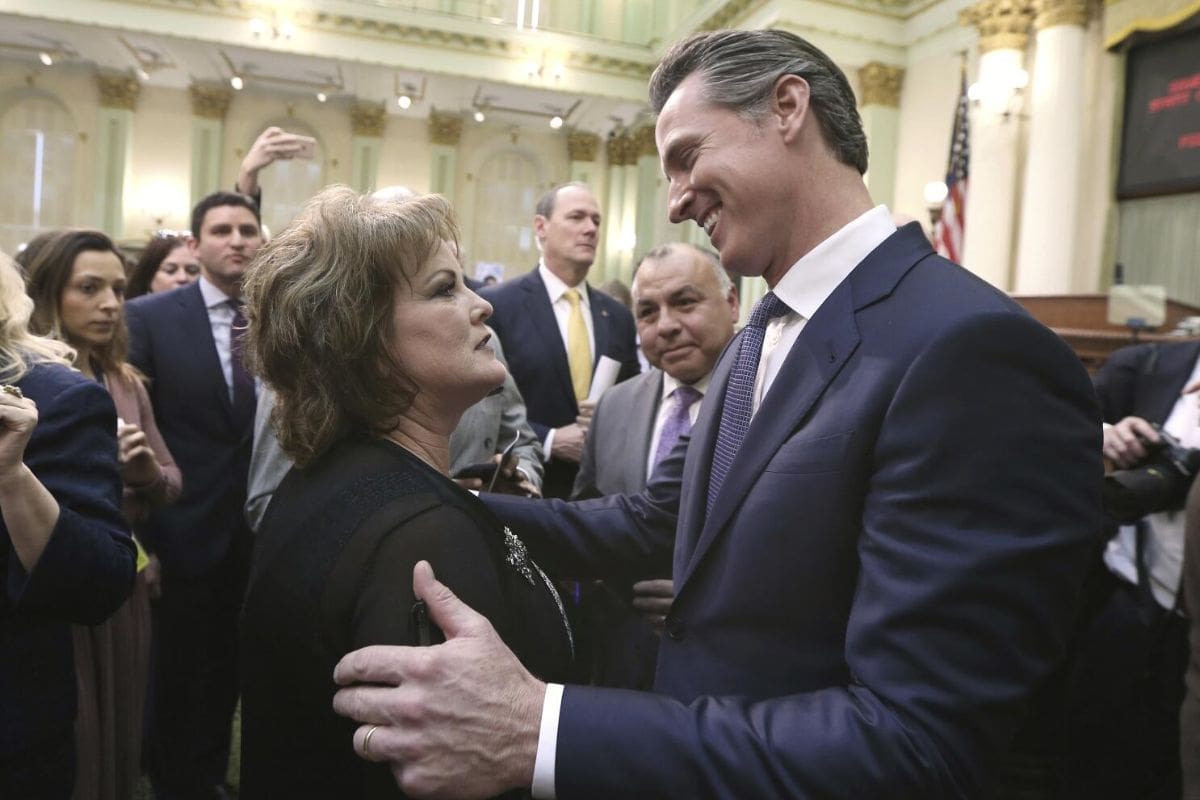Bipartisan Backing: In a political landscape often marked by stark divisions, the recent bipartisan support for a significant mental health measure has raised eyebrows and piqued interest across party lines.
This unexpected alliance, forged in the midst of heated ideological debates, has sparked intrigue and speculation about the motives driving this collaboration.
As stakeholders from both sides of the aisle come together to back Proposition 1, the implications of this rare show of unity on such a critical issue are profound and far-reaching.
The convergence of diverse perspectives on mental health policy hints at a potential shift in the traditional political paradigm, hinting at broader implications yet to be uncovered.

Unlikely Allies: Bipartisan Support for Proposition 1
In a remarkable display of bipartisan unity, State Sen. Shannon Grove and Gov. Gavin Newsom have aligned to support Proposition 1, marking a significant shift in addressing mental health and homelessness in California. Despite their differing political affiliations – Grove being a vocal Trump supporter and Newsom a prominent figure in the Democratic Party – the two have come together in an unexpected alliance to back the $6.4-billion bond aimed at updating the state’s mental health services. This collaboration underscores the critical nature of the issues at hand, transcending political divides for the greater good of the state.
Grove’s endorsement of Proposition 1 is particularly noteworthy, given her conservative background, highlighting the growing recognition across party lines of the urgent need to address the mental health crisis and its interconnectedness with homelessness. The rare bipartisan backing of this measure in the Legislature signifies a promising step towards implementing substantive changes to support vulnerable populations in California.
Proposition 1 Overview: Tackling Mental Health Crisis
Addressing California’s mental health crisis, Proposition 1 aims to tackle the issue by proposing a $6.4-billion bond for enhancing mental health services and combating drug addiction. The proposition emphasizes the critical need for improved treatment options and support systems. The ballot measure recognizes the interconnected nature of mental health challenges with homelessness, seeking to provide comprehensive solutions.
By allocating funds to enhance mental health services, increase treatment beds, and address drug addiction, Proposition 1 aims to create a more robust support system for individuals in need.
The bipartisan support for Proposition 1 underscores the widespread acknowledgment of the urgency to address mental health issues in California. With bills supporting the measure receiving approval across party lines in the Legislature, there is a united front in recognizing the significance of investing in mental health services. This substantial financial commitment reflects a concerted effort to combat the mental health crisis and improve the overall well-being of Californians.
Governor’s Compromise: Navigating Ideological Divides
Governor Newsom’s strategic maneuvering across ideological divides has positioned mental health as a unifying priority in California’s political landscape. By emphasizing the urgent need to address mental health and substance abuse issues, Newsom has transcended traditional political differences, garnering bipartisan support for his initiatives. This departure from ideological divides marks a significant shift in governance, showcasing a commitment to prioritizing the well-being of Californians above partisan interests.
Despite this bipartisan backing, progressive critics have expressed concerns about potential involuntary methods proposed in the mental health measures. These reservations highlight underlying tensions within the Democratic Party regarding the balance between individual liberties and public health imperatives. Newsom’s ability to navigate these ideological divides and address the varied concerns reflects his adeptness at finding common ground amidst differing viewpoints.
As the mental health measure gains momentum with bipartisan support, Newsom’s compromise-oriented approach continues to shape the discourse around mental health policy in California, emphasizing collaboration and unity in addressing this critical issue.

Challenges and Opposition: Proposition 1’s Controversies
Amidst Proposition 1’s controversies surrounding mental health funding and treatment approaches, diverse stakeholders have raised significant concerns despite the measure’s strong public approval ratings. Criticism from mental health advocates, Republicans, and progressives centers around several key issues:
- Funds Allocation: Questions arise about the allocation of funds towards secure mental health facilities. Some argue that resources might be better utilized in community-based programs or outpatient services.
- Coercive Treatment: There are worries about potential risks associated with coercive treatment approaches. Balancing patient autonomy and the need for intervention remains a contentious point.
- Advocacy Concerns: Mental health advocates express apprehension about the long-term effectiveness of the proposed strategies, emphasizing the need for sustainable solutions beyond the immediate scope of Proposition 1.
- Ethical Considerations: Ethical dilemmas surrounding involuntary treatment methods and the safeguarding of individual rights spark debates among stakeholders, highlighting the complex ethical landscape in mental health policy.
National Implications: Newsom’s Centrist Strategy
With Newsom’s centrist approach to Proposition 1, he emerges as a bridge builder in a politically polarized landscape, hinting at potential shifts in national dynamics. Governor Newsom’s willingness to seek bipartisan solutions showcases his ability to navigate contentious issues and find common ground.
By appealing to a broader audience beyond California, Newsom’s approach underscores a growing trend towards moderation and collaboration in politics. The implications of Newsom’s centrist strategy reach far beyond the borders of California, resonating with a nation grappling with deep political divisions.
Proposition 1, as a test of bipartisan cooperation, highlights the importance of finding middle ground in addressing critical issues like mental health. Newsom’s centrist stance not only fosters unity within the state but also sets a precedent for a more inclusive and pragmatic approach to governance at a national level.
As Newsom treads the path of centrist policymaking, his actions may serve as a model for future leaders seeking to mend the tears in the fabric of American politics.

Also Read: Consumers Beat High Prices: The Secret Tactics Revealed!
News In Brief
In a surprising turn of events, bipartisan support has emerged for California’s Proposition 1, a pivotal mental health measure. Spearheaded by State Sen. Shannon Grove and Governor Gavin Newsom, the alliance transcends political divides, signaling a unified effort to address the state’s mental health crisis. Proposition 1, a $6.4-billion bond initiative, aims to bolster mental health services and combat addiction. Despite progressive concerns and opposition, the measure reflects a broader shift towards collaboration in governance. Newsom’s centrist strategy navigates ideological differences, setting a precedent for bipartisan policymaking. As California leads the charge, the implications of this bipartisan support extend beyond state lines, offering a model for inclusive governance nationwide.
Our Reader’s Queries
What is the California mental health Proposition?
Governor Gavin Newsom’s Proposition 1 marks a significant step in California’s ongoing battle against mental illness. This proposal seeks to allocate fresh funding towards housing and treatment facilities, targeting the crisis unfolding on the streets of cities.
What is the 1% mental health tax in California?
The Mental Health Services Act, approved by voters in 2004 as a ballot measure, imposes a 1% tax on personal income exceeding $1 million. Enacted during a period of substantial underfunding for the state’s mental health system, this tax has generated approximately $26 billion for county mental health programs.
Is mental health free in California?
If eligible, you can access mental health care through your county program with a nominal co-pay or a discounted sliding-scale fee. Even if you don’t meet the criteria for state-funded services, California’s system offers free information, local referrals to cost-effective providers, and other crucial assistance.
How many people in California have mental health issues?
In California, 1,243,000 adults grapple with a severe mental illness. Over half of Americans note a detrimental effect on their mental health due to COVID-19. By February 2021, 46.1% of California adults displayed symptoms of anxiety or depression.

